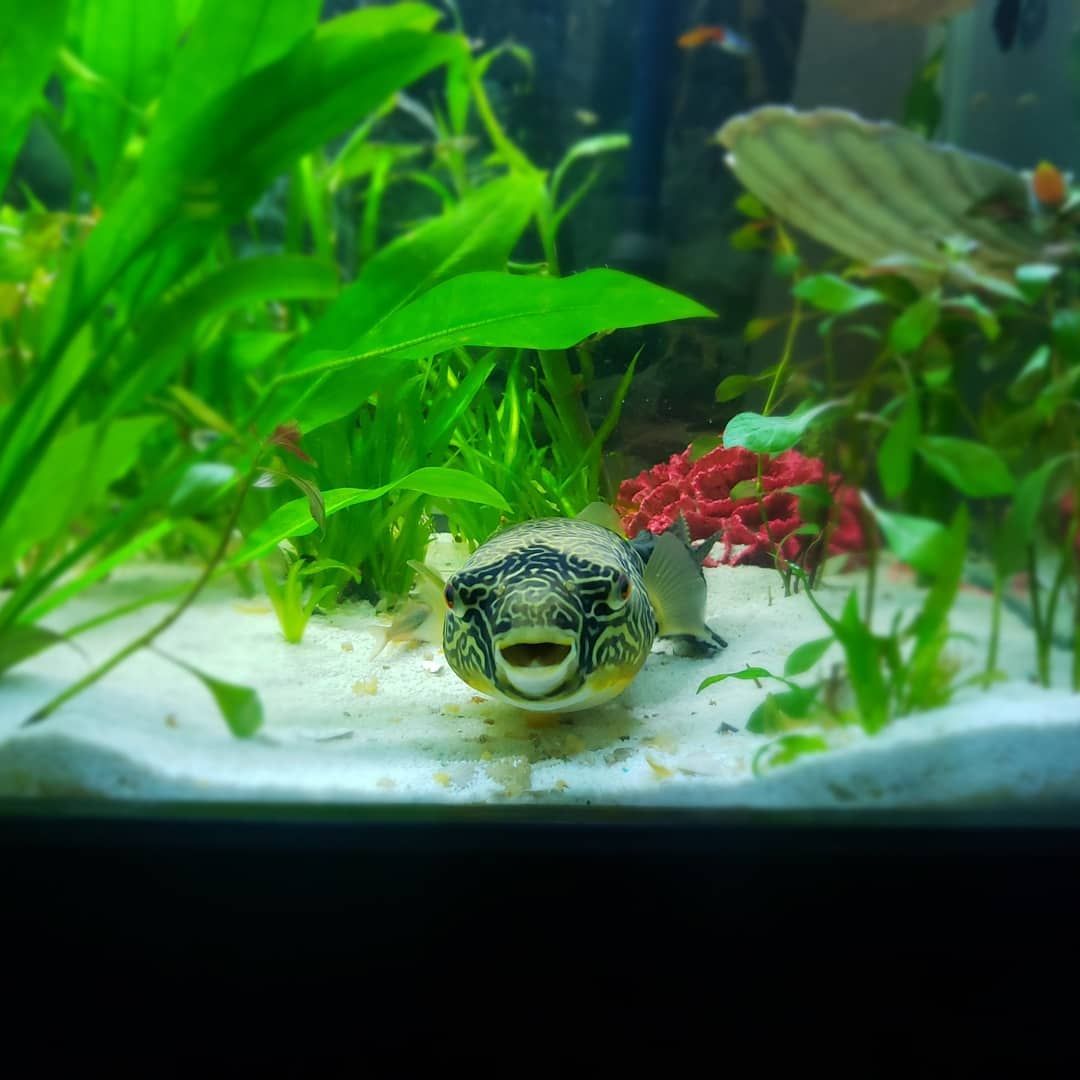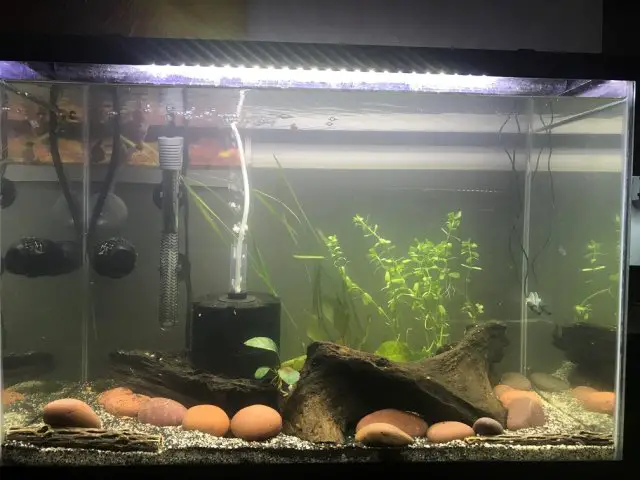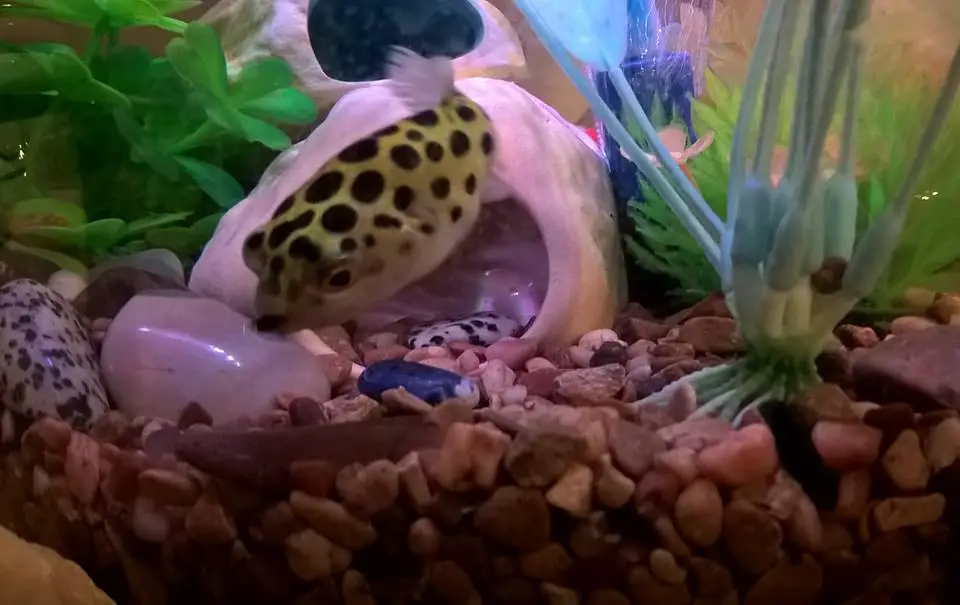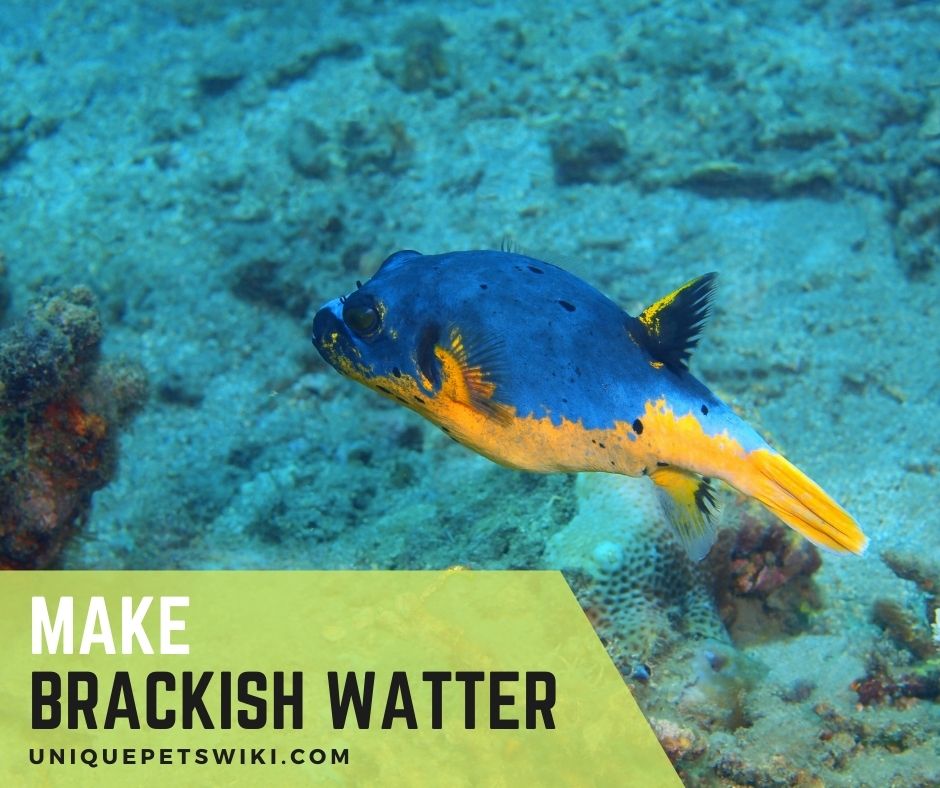There are about 40 types of pufferfish that can be found in brackish water. While about 29 species are freshwater species.
How to make brackish water for puffer fish is main concern from many puffer fish owners and even me a few years ago.
I managed to make brackish water myself after several failed. Yup, I was successed.
In this article, I will share with you what does brackish water mean and how to make brackish water, I also share some tips on keeping puffer fish in brackish water.
Let’s explore!
Contents
What does Brackish Water Mean?
Brackish means the level of salt in water, and it is usually in the middle between freshwater and marine water.
Brackish water is naturally the spot where fresh streams meet the ocean.
Some of the pufferfish species that can live in a brackish water environment are Figure 8 Puffer, Spotted Puffer, Fugu Puffer, Ceylon Puffer, Golden Puffer.

Setting up a brackish Water tank for you pufferfish
Last update on 2022-12-29 / Affiliate links / Images from Amazon Product Advertising API
Size of brackish Water tank
You can use any size of tank for a brackish set up.
The size of the tank will be based on the types of fish species that you want to keep.
You will find a wide range of brackish species that you can choose from.
Water of brackish tank
A brackish tank needs to have hard water. Means pH level from 7.2-8.5 and a specific gravity of 1.005 to 1.020.
You will also need to keep a temperature between 23-29 degrees Celsius. A heater in your tank to keep the temperature of the water high will keep your fish comfortable.
Brackish water tanks are usually with less salt than the reef or marine aquarium. The reef and marine aquariums are generally at a salinity of around 1.024-1.026. But brackish tanks are around 1.005 to 1.008.
You should also keep in mind that you will add salt mixture and water in a bucket before you add it to the tank.
By adding salt directly into the tank can lead to severe damage to the plants and fish.
You should also use around 10g of marine salt per liter of water while mixing.

How To Make Brackish Water Tank?
- Fill a bucket with fresh water and ensure you leave a space at the top for the rising levels after you add salt.
- Make the bucket water temperature the same with the tank temperature by using a heater.
- After heating the water, add the appropriate amount of salt with the amount of water in the bucket.
- Stir the saltwater so the salt can circulate equally.
- Allow the water to sit for 20 minutes to make sure that all the salt dissolves in the water. You can then stir the water again.
- Then add the water into the water while you continually measure the specific gravity with your hydrometer so that you can get the appropriate levels.
You will then leave the water for water so that the nitrogen cycle is completed before you introduce your fish to the tank.
If you are planning to switch from a freshwater tank, it is best if you change water type slowly over weeks. You can start by taking out about 20% of the freshwater and replace it with saltwater mix while you increase the specific gravity levels per week by .002. This method will help your fish not to be harmed from the change.
Tank decorations suitable for a brackish water pufferfish
Pufferfish are very active, but they are also prone to stress-related illnesses, which means they need to feel secure while in their new environment. A suitable environment for pufferfish is usually a tank with a sand or gravel substrate with plenty of live or plastic plants where they can hide.
You can also set up some cave where they can hide in for ambush predators. Puffers are aggressive even to their own species, and you can build a hiding place if you are planning to keep more than one fish in the same tank. You can also buy driftwood or tree root ornaments for your aquarium to make them feel at home.

Accessories needed for a brackish tank
Thermometer
Last update on 2022-12-29 / Affiliate links / Images from Amazon Product Advertising API
It is best if you have a thermometer with a refractometer or hydrometer to measure the temperature and specific gravity of the water in your tank. You can shop for a hygrometer from numerous stores or look for reviews on the internet for a reliable and serviceable model.
You cannot use hobby hygrometers because they are designed for marine aquarium use, and some do not measure lower salinity levels. When shopping for the hygrometer, you can check the scale to ensure that you can use it for brackish water.
Heater
Last update on 2022-12-29 / Affiliate links / Images from Amazon Product Advertising API
You will need a good heater for maintaining the appropriate temperatures that most brackish fish loves.
You can invest in a mechanical filtration with a power filter to circulate the warmth in the tank.
Ensure that you have a biological and carbon component in your filter if you do not have a vegetative filtration.
Salt to make a brackish water tank is important if you want to maintain a thriving tank.
It is best if you mix a marine salt mix instead of aquarium salt.
You should avoid table salt because of the silicates and iodide.
Try to use equipment that is suitable for both freshwater and saltwater tank because freshwater tank equipment can be damaged by salt.
Small note for your brackish aquarium
The water parameter of the brackish aquarium is DH of 9-19 and a pH range between 7.5-9.5. Using marine salts will help to form this condition, you can also add finely crushed coral or shells that are mixed into the sand or in a nylon bag to make the water parameters in range. This method is more natural and less stressful than the chemical additives method.
Last update on 2022-12-29 / Affiliate links / Images from Amazon Product Advertising API
Brackish Water Tank Maintenance Schedule
After you have set up your brackish water aquarium, the next step is to make an arrangement for the cleaning schedule.
Pufferfish need clean water in their tank in other for them to survive.
You can clean your reservoir by changing a small amount of water, like 15% once a week. You should also use the end of the net to mix the gravel or pebbles to take the debris in the net. After that, you can use the procedure before to make a saltwater mix to fill the 15% water that you have taken out.
Apart from changing the water every week, you should also try to check the salinity levels of your water daily because of water evaporation.
This will, in turn, leave salt behind, and your aquarium will then become too salty.
It would help if you also tried to give a deep clean to your tank once a month.
A deep clean involves glass and ornament cleaning with filter change after the regular weekly cleaning procedure.



